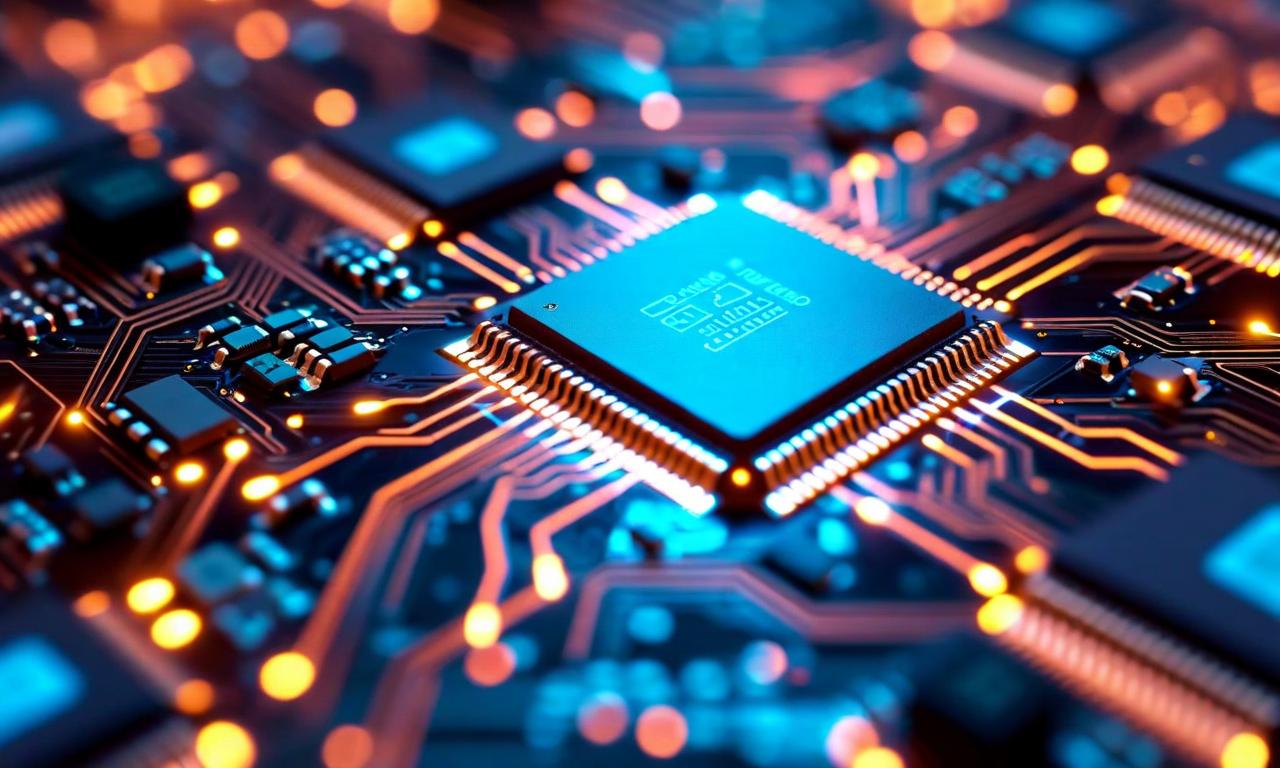Samsung's Chip Division Surges with 80% Profit Jump, Riding AI Memory Wave
Samsung Electronics reported a significant boost in its semiconductor division's performance, driven by AI-related memory chip demand. The division posted an operating profit of 7 trillion won for the September quarter, an 80% increase exceeding analyst expectations. The company's memory chip business achieved record-breaking quarterly revenue from HBM3E sales. Samsung's overall net income reached 12.01 trillion won, surpassing estimates. The company plans to focus on mass production of next-generation HBM4 memory for AI accelerators and has allocated 47.40 trillion won for capital spending in 2025.

*this image is generated using AI for illustrative purposes only.
Samsung Electronics has reported a significant boost in its semiconductor division's performance, largely driven by the growing demand for AI-related memory chips. The tech giant's latest financial results reveal a remarkable turnaround in its chip business, surpassing market expectations.
Record-Breaking Performance
Samsung's semiconductor division posted an operating profit of 7 trillion won for the September quarter, marking an impressive 80% increase. This figure substantially exceeded analyst expectations of 4.7 trillion won, showcasing the company's strong position in the AI chip market.
AI Memory Chip Success
The company's memory chip business achieved a milestone by recording its highest-ever quarterly revenue from HBM3E (High Bandwidth Memory) sales. This success is attributed to the surging global demand for AI-related technologies.
Financial Highlights
| Metric | Amount (in trillion won) | Notes |
|---|---|---|
| Semiconductor Division Operating Profit | 7.00 | 80% increase, exceeded expectations |
| Overall Net Income | 12.01 | Surpassed estimates of 9.29 |
| Capital Spending Allocation (for 2025) | 47.40 | Approximately $33 billion |
Future Strategy
Samsung plans to focus on the mass production of next-generation HBM4 memory, specifically designed for AI accelerators. This move indicates Samsung's commitment to maintaining its competitive edge in the rapidly evolving AI chip market.
Market Position
While Samsung celebrates its recent success, it's worth noting that the company is working to regain market position against competitor SK Hynix in the AI memory chip sector. The strong performance in the latest quarter suggests that Samsung's strategies are yielding positive results in this highly competitive landscape.
Investment in Future Growth
To support its plans and expand capacity, Samsung has allocated 47.40 trillion won (approximately $33 billion) in capital spending for 2025. This significant investment underscores the company's confidence in the continued growth of the AI chip market and its determination to secure a leading position.
The impressive financial results and strategic focus on AI-related technologies indicate that Samsung is well-positioned to capitalize on the growing demand for advanced memory solutions in the AI era. As the tech industry continues to evolve, Samsung's performance in the coming quarters will be closely watched by investors and industry analysts alike.





























